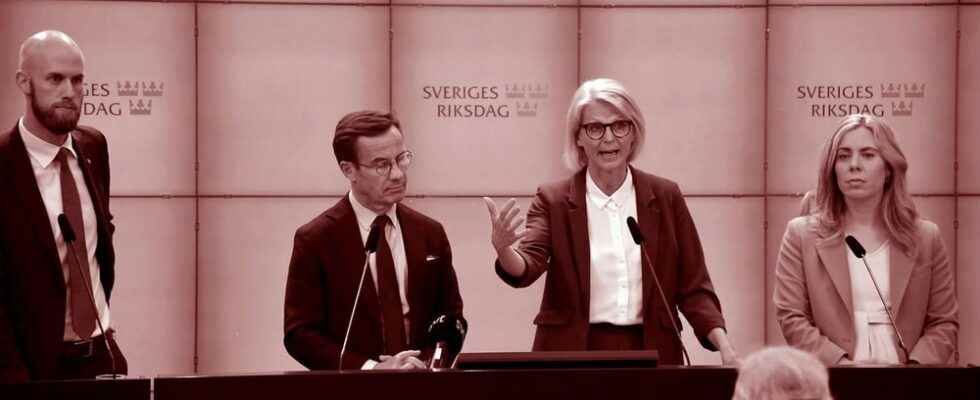The math is simple. If Sweden is to push net emissions to zero by 2045, electricity production must double, probably more. Fossil-free cars and buses will take up large quantities, the factories of the future even more. Only the investments in carbon-free steel and green batteries in Norrland expected devour half of Sweden’s current electricity production of approximately 160 TWh per year.
Wind power can and should continue to be developed both on land and at sea, but it will not be enough. The government’s plan is to quadruple wind power to 100 TWh by 2040 – still well below the more than 300 TWh required by future needs. Hydropower can cover some but far from everything. Municipal vetoes – eight out of ten wind turbines were stopped last year – as well constant rejection of the spinners in the sea bands further obscures the forecasts.
Add that wind power is affected by built-in problems that proponents are reluctant to talk about loudly, mostly because it affects the necessary voltage stability in the electricity networks because it is not adjustable.
This is a paradox. In order for wind power to be able to be expanded and make real use, not only simplified permit processes are required, but also that planable types of power keep pace. Fossil sources are excluded. Hydropower is difficult to scale up for environmental reasons. Nuclear power thus becomes a logical solution. It produces large amounts of fossil-free electricity, stabilizes electricity networks and can be built close to users. Nuclear power works as a complement to wind power.
The Moderates’ election promise a week to subsidize billions of new reactors through government loan guarantees is thus right – in half. Ulf Kristersson & co is right that nuclear power should be supported and developed, but at the same time reinforces the delusion that different types of power are in conflict with each other. “If Sweden is to become carbon neutral … there is only one proven and working solution: nuclear power”, notes M.
The moderates, who recently pushed for a reduction in petrol prices, justify their nuclear investment by saying that no one should have climate anxiety when oil heating is on.
The plot thus becomes a symptom of the main problem with the energy debate, namely that it has been hijacked for cultural war purposes and thus become both destructive and extremely silly. M, who recently pushed very loudly for a reduction in the price of petrol, justifies, for example, his nuclear power investment by saying that no one should “have climate anxiety when oil heating is running at full capacity for the electricity to run out”.
In the same consistent spirit, the right-wing party, which usually sees socialism in every subsidized electric bicycle, believes that it is “absolutely necessary” to guarantee loans to private companies for SEK 400 billion. S and MP, on the other hand, are of course very careful that the market must be allowed to govern, at least when it comes to nuclear power.
These charades must end. The choice is not between wind power and nuclear power, Sweden’s future as an industrial country depends on the expansion of both in parallel. Those who have doubts can listen to the directors of Swedish Wind Energy and Uniper – partners in all active Swedish nuclear power plants – when they in a joint debate article emphasizes just this (Today’s industry 23/5).
They appeal for an “end to the political quarrel in the energy debate” and emphasize that “short-term public opinion gains in the energy field take place at the expense of Sweden’s opportunities to achieve the climate goals”. Instead, they urge politicians to create long-term conditions for the market to produce the enormous amounts of electricity that Sweden’s conversion will require.
It can hardly be said more clearly.
Start with negotiate a new, technology-neutral energy agreement that enables the expansion of more nuclear power. Then set up a green investment fund outside the budget that does not differentiate between power types, as Germany has done.
Look at the whole.
And stop arguing.
